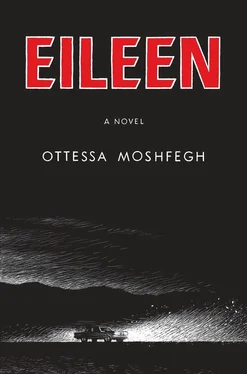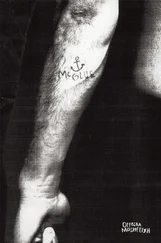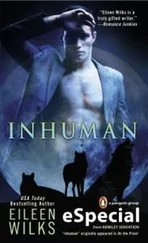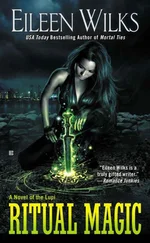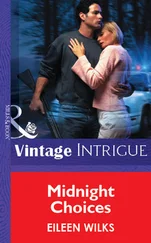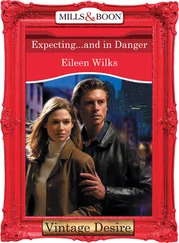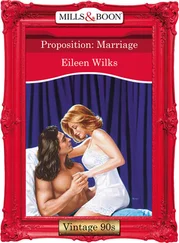By midnight I was back on that cold cellar floor, panting with the effort that my body had exerted in emptying my innards, thanks to the laxatives. The toilet tank ran hard. Part of me, I remember, wished one of my father’s dark angels would materialize from the musty shadows and yank me down into its underworld. Alas, no one came. The darkness spun and spun and then it stopped, and so I floated up the cellar stairs and through the cold kitchen and up to my attic and fell asleep, exhausted, pacified, and utterly miserable.
T hat Sunday morning I woke up hungover on my cot in the attic, my father calling up to me to help him get ready for morning Mass. That meant buttoning his shirt, and holding the bottle to his lips because his hands were too shaky. I wasn’t very well myself, of course, vision still blurred from the whiskey, my body a limp rag wrung hard by the laxatives the night before.
“I’m cold,” my father said, shivering. He tugged at his unshaved jaw and winced, looked at me as if to say, “Get the razor.” And I did. I lathered up the cream and shaved him right there in the kitchen, standing over the sink full of dirty dishes, a salad bowl full of cigar ash, moldy bits of bread green as pennies here and there. It may not sound all that bad to you, but it was pretty grim living there. My father’s moods and explosions were exhausting. He was so often upset. And I was always afraid of displeasing him by accident, or else I was so angry that I would try to displease him deliberately. We played games like an old married couple, and he was always winning. “You smell like hell,” he said to me that morning as I curved the razor around his jaw.
So of course I felt like killing him sometimes. I could have slit his throat that morning. But I said nothing: I didn’t want him to know how much he displeased me. It was important to me that he not know he had the power to make me miserable. It was also important not to let on just how much I wanted to get away from him. The more I thought about leaving him, the more I worried he might chase after me. I figured he could rustle up his friends in the police department, call a statewide search for the car, plaster my face in “Wanted” posters up and down the eastern seaboard. But that was all just fantasy, really. I knew he’d forget all about me when I was gone. And it seems he did. Back then I reasoned that if I were to leave, someone would step up to take care of him. His sister could hire help. Joanie could make an effort for once. Not everything was my responsibility, I told myself. He’d be fine without me. What was the worst that could happen?
When my aunt arrived to pick him up that day, she beeped and we bustled out. Her name was Ruth. She was my father’s only sibling. My father waited on the porch — oh, for one of those icicles to break off and lodge in his brain — while I walked around to the driveway, unlocked the trunk of the car and pulled out a pair of his shoes.
“Not those,” he hollered. “Those have a hole.”
I pulled out another and held them up.
“OK,” he said. My aunt barely looked up at me, pinched face squinting from the glare on the snow. I waved as I passed her car. She did not wave back. On the porch I tied my father’s laces and sent him on his way.
What a good girl I was, in hindsight, buttoning my father’s shirt and tying his shoes and all. I knew in my heart that I was good, I suppose. Here was the crux of my dilemma: I felt like killing my father, but I didn’t want him to die. I think he understood. I’d probably told him as much the night before, despite my instinct toward secrecy. We’d stay up and drink together often, just my father and I. I have a vague memory from that Saturday night of laying my face down on the kitchen table and yawning, looking up at him with the bottle of whiskey in his one hand, gin in the other. “Not very nice, Eileen,” he’d said, referring, I think, to my splayed legs, lipstick all smeared. This wasn’t unusual for us. We weren’t friendly, but we did talk sometimes. We argued. I’d wave my hands around. I’d say too much. I did the same thing later on in life, when I drank with other men, mostly stupid men. I expected them to find everything about me interesting. I expected them to see my drunken wordiness as a kind of coy gesture, as though I were saying, “I’m just a child, innocent to my own foolishness. Aren’t I cute? Love me and I’ll turn a blind eye to your faults.” With those other men, this tactic earned me brief sessions of affection until I became soured and saw that I had defiled myself by appealing to them in the first place. I failed and failed with my father to win his affection in this way, blabbering on about my ideas, regurgitating barely read synopses from the backs of books at the kitchen table, talking about how I felt about myself, life, the times in which we lived. I could get very dramatic after just a few drinks. “People act like everything’s OK all the time. But it isn’t. Nothing is OK at all. People die. Children starve. Poor people are freezing to death out there. It’s not fair. It isn’t right. Nobody seems to care. La-dee-dah, they say. Dad. Dad!” I’d slap the table to make sure he was listening. “We’re in hell, aren’t we? This is hell, isn’t it?” He’d just roll his eyes. It drove me mad.
Once he’d gone off to church that morning, I cooked myself scrambled eggs with ketchup and heated a beer on the stove, my hangover cure of choice. That doesn’t work, of course. Don’t bother trying it. But it did feel good to eat after having emptied my guts into the basement toilet the night before. I felt I had a blank slate, a clean beginning, though I don’t think I showered that morning. I hated showering, especially in winter since the hot water was spotty. I liked to languish in my own filth as long as I could tolerate it. Why I did this, I can’t say for sure. It certainly seems like a rather lame way to rebel, and furthermore it filled me with constant anxiety that others were sniffing my body and judging me by its odor: disgusting. My father said it himself: I smelled like hell. I dressed myself in my mother’s old Sunday clothes — gray trousers, black sweater, hooded woolen parka. I put on my snow boots and drove to the library. I’d just finished looking through a brief history of Suriname and a book on how to tell the future from looking at the stars. The former had great pictures of nearly naked men and old topless women. I recall one photograph of a monkey suckling a woman’s nipple, but perhaps I’m inventing. I liked twisted things like that. My curiosity for the stars is obvious: I wanted something to tell me my future was bright. I can imagine myself saying at the time that life itself was like a book borrowed from the library — something that did not belong to me and was due to expire. How silly.
I can’t say I’ve ever really understood what it means to be Catholic. When Joanie and I were little, our mother would send us to church with our father every Sunday. Joanie never seemed to protest, but she’d just sit there during the liturgy reading Nancy Drew, chewing gum. She refused to kneel and stand along with the rest of us and said, “Blah blah blah” instead of the “Our Father,” twirled her hair. She was pretty enough, aloof enough already at nine or ten for our father to overlook any flawed manners. But at five, I was still plump, pale, eyes small and squinty — I didn’t find out I needed glasses until I was thirty — and I suppose my aura carried enough doubt and anxiety to fill my dad with shame. “Don’t embarrass me,” he’d mutter on our way up the church steps. He’d be greeted left and right by cheerful, brownnosing members of the congregation, X-villers who must have thought it advantageous to be in the good graces of a man in blue. Dad wore his uniform to church, of course. Or maybe they were all scared of him. He certainly scared me. I remember he’d leave his gun in the glove box while we were at Mass, perhaps the only time he spent without it those days. “Good morning, Officer Dunlop,” someone would say. Dad would shake hands, put an arm around Joanie, a hand on my head, and stop to chat. If I was ever asked a question or received any attention at all, my father would leer down at me as though to say, “Be normal, look happy, act right.” Inevitably I would disappoint him. I’d go mute or mess up my words, grimace and tear up when some friend of his tried to pinch my cheek. I hated church.
Читать дальше
